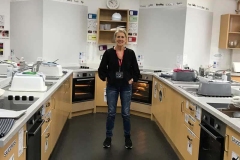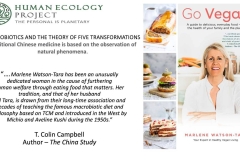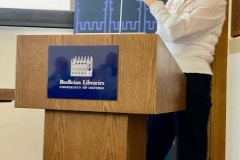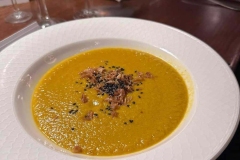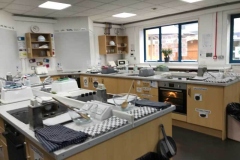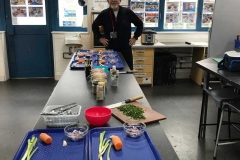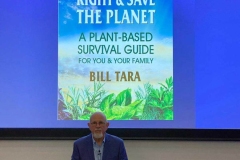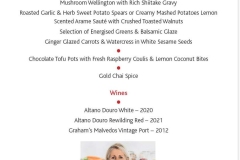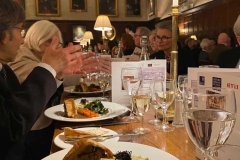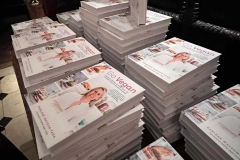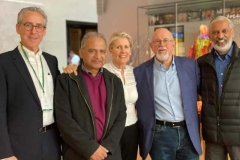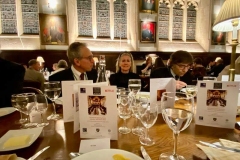What About Water? Workbook
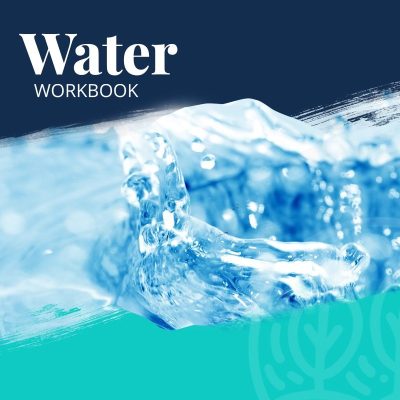
Water, water, everywhere, and not a drop to drink.
This is a Human Ecology Project Workbook What About Water?
We hope you can find a group of friends and watch the video together to discuss the issues presented in it. We have supplied some questions to get the ball rolling if you need them, and supplied a full text of the video with references to some studies and articles if you want to carry your studies deeper.
Given the importance of water to our life and the health of the planet we need to be mindful of how we can help in the conservation and sustainability of this precious resource. Even though humans around the world need clean water to survive only 1 in 9 people around the globe get it.
Remember: The Personal Is Planetary.
Watch the Video
In good health

Super Bugs For Super Health - How The Microbiome Protects The Gut
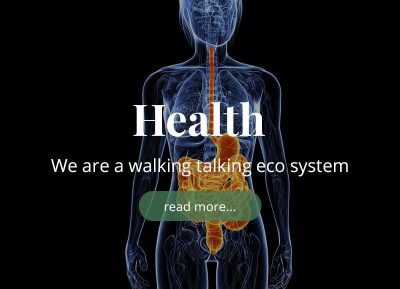
Did you know we are only 10 percent human? Ninety percent of our cells are nonhuman, microbial cells. Humans and our ancestors have evolved since the most ancient times with a commensal microbiota. This is the term used to describe the microbial environment that lives within the human body.
Since our diet influences our microbes, it’s true: we really are what we eat and absorb. A healthy well-balanced microbiota is essential for good health and longevity. Imbalances can impact the functioning of every single body system and speed disease process.
Good News & Bad News
The good news is that you can cultivate a new microbiota, formerly known as gut flora, quickly by changing what you eat. Bacteria that live in our intestinal tract, also known as gut bugs, flourish by munching on colourful, plant-based foods. We need to consider the microbiota, not just when treating gut disorders, but when considering metabolic dysfunction, recurrent infections, heart disease, mood disorders, neurological disorders, cognitive decline, energy levels, healthy ageing and so much more.
The bad news is that researchers discovered a new gut species, Ruminococcus. This gut species was previously unknown. It is essential for the digestion of cellulose from fibre to feed the good microorganisms in the gut. Western diets led to the disappearance of these gut bugs.
A recent study compared the microbiomes of people living in rural, hunter-gatherer, and industrialized societies. Ruminococcus were abundant in microbiomes of those from ancient hunter-gatherer societies. But the more urbanized a person is, the less of it they have.The main culprit? The lack of fibre in today's diet. Without enough fibre, Ruminococcus starve and gradually disappear from our gut.
Happy Bugs – Happy Me
The healthy gut bugs in our intestinal tracts are in charge by helping our bodies digest and absorb nutrients, synthesise certain vitamins, and rally against intruders, such as influenza and toxic cancer-forming carcinogens. In addition to boosting our immune system, microbiota sends messages to our brain and helps regulate metabolism.
Over time, microbiota forms colonies to combat obesity, type 2 diabetes, heart disease, autoimmune disease, and even certain forms of cancer. With 70-80% of immune cells being present in the gut, there is an intricate interplay between the intestinal microbiota, the intestinal epithelial layer, and the local mucosal immune system.
The Factor With The Greatest Detrimental Impact On The Microbiota is Antibiotics
Stanford University microbiologists Erica and Justin Sonnenburg have noted that it is very possible that there are very few Americans who have healthy gut microbiomes. They cite the overuse of antibiotics, sterile living environments, and dramatic changes in our diet as the most possible causes.
Central to the dietary issues is the lack of plant fibre in the diet. The biome needs the plant fibre to function. When plant fibre is scarce, the fermentation in the gut is starved of fuel and can’t reduce inflammation. SCFA’S (short chain fatty acids, especially butyrate improves mitochondrial function and mitochondrial health.
Butyrate is produced when the bacteria in the lower gut feast on fibre found in foods like whole grains, short grain brown rice, quinoa, oats, legumes such as beans, lentils, chickpeas, fruits, vegetables, nuts, and seeds.
What You Can Do
- Enrich your gut health by eating foods high in Inulin, an insoluble fibre that travels through our bodies from the small to large intestine, our colon. Once this insoluble fibre finds its way to the colon, it ferments into healthy microflora. Good sources of inulin include soybeans, oats, chicory, asparagus, garlic, leeks, and onions to name but a few.
- Load up on leafy greens. Glucosinolates latch onto carcinogenic intruders in our colon and remove them. Over the long run, this pays big dividends: Studies show people who eat the most cruciferous vegetables reduce their risk of colorectal cancer by 18 percent.
- All micronutrients work in concert with others, usually in pairs. The proper balance of these complimentary pairings cannot be worked out in the lab. It is the microorganisms in the gut biome that “decide” which nutrients to allow in and which to reject. This distinction is made according to what an individual needs, not what they think they want. This is why a simple, unprocessed, unfortified, diet is the healthiest.
- There are a number of factors that contribute to the health of your gut microbiome, including your environment, the amount of exercise and sleep you get, and of course, stress. But the number one factor that determines what microbes live in your gut (and which ones die off) is your diet.
- Download our free eBook, The Human Ecology Diet for ideas on creating a diverse healthy diet. https://humanecologyproject.com/what-to-eat/
In good health

Great Success with Our Oxford Presentations

Dear Friends
Where does the time go? In the blink of an eye, the first quarter of 2024 seemed to pass very quickly. However, we are delighted to share that we are making great inroads with our educational programmes.
The Oxford Literary Festival was a wonderful success on all fronts, and we made many new connections. Bill and I were thrilled to have such good attendance at our presentations, (we will post our videos in the next newsletter). The resounding cheers around the great building at both gala dinners was a joy to behold. The hundreds of guests who dined on my vegan menu at each event loved my food. I am deeply grateful to the Head Chef and his team who did an amazing job.
The Green Room
Vegan sandwiches were served up buffet style in the green room every day. My selection of fillings was enjoyed by all. We mingled with so many wonderful authors from around the world who were asking us many positive questions about our vision for our Human Ecology Project. Opening doors to spread our vision for a healthy world for humans and non-humans alike will bring more and more people to the table.
Go Vegan
I signed over 200 copies of Go Vegan at the event, so, many more families will now be empowered to educate themselves and cook delicious vegan food. It's already been confirmed that we will both present next year and I will once again design the menus for the gala dinners that will continue to be vegan.
A huge thank you to Professor Gary L. Francione, Professor Anna Charlton and Sally Dunsmore SOI, Director, The Oxford Literary Festival for pioneering this first ever vegan festival.
Moving Forward with Our Schools Programme
The schools programme that we presented as part of continued education programmes at Oxford was also a great success. The kids had a wonderful time making my vegan burgers and all lined up to have their copy of Go Vegan signed. Such a joy to behold, to see the fun they all had. There was not a morsel of food left on their plates. We received such wonderful feedback from the teachers, who equally enjoyed the event.
Our next session is booked for July at another school in the area. These events are organised by Professor Stephen Law, Departmental Lecturer in Philosophy and Director of the Certificate of Higher Education at OUDCE. We are delighted to be working with Stephen, who will reach out to many schools with our programme.
Video Interviews & Podcasts
We are always thrilled to share some wonderful words of wisdom from our advisory board. Working online is important as we connect with many of our advisory board members from around the world. However, we were blessed to have an advisory board member, Dr. Sailesh Rao, founder of Climate Healers, with us in the UK. Sailesh came for lunch and, we had an excellent conversation regarding a study from the University of Copenhagen showing that, of the nine planetary boundaries, humanity has transgressed six of them beyond the limits of “safe operating space.” This interview will be available in our next newsletter. In the meantime, you can view Dr. Doug Lisle and Dr. Tim Radak interviews on our YouTube channel or listen or view on our podcast channel.
Every Picture Tells A Story
Please browse through the gallery images below to see just a few wonderful images that were captured throughout the event. From setting up cooking stations for the kids arriving at the school, to dining in the centuries-old incredible buildings at Oxford University, the whole event was magical. Of course, the icing on the cake, so to speak, was that the event was vegan.
As Bill and I say to everyone, we can learn to be positive, not through clichéd platitudes (“Just put on a happy face”), but by learning a new set of skills, like cooking deliciously healthy whole food plant-based meals, for starters. Education is the most powerful tool we possess to assist us in moving toward a vegan world. Non-violent, peaceful presentations and bringing people together is the way forward.
In good health

Macrobiotics and the Microbiome
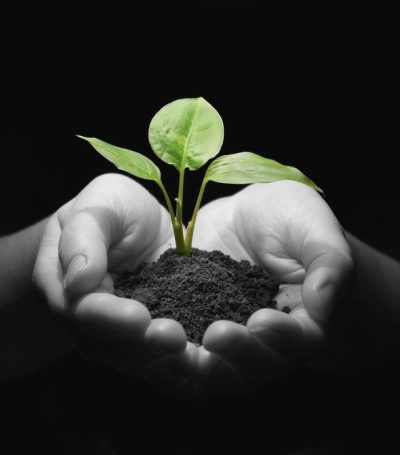
Over the past twenty years there has been a consistent growth in the study of the human gut biome. We are fascinated with the idea that there is a living environment contained within us that may comprise the largest organ of the body. This attraction becomes even more compelling when it has been linked with the potential for the gut biome to have influence on our emotions, our mental functions, and our immune system. It would surprise many to know that the mind gut connection is not a new subject.
My interest in ancient wisdom traditions has shown me one thing. The ancient language of medicine is more poetic than analytical. By this I mean that the healers of the past worked with physical observation, the senses and “feelings” about the body and its functions. They relied on the wisdom taught to them by the generations that came before them. They had a holistic rather than a reductionist point of view. This understanding was ecological in perspective. Focused on the connections that exist within nature between all things.
Back in the 1960's, Michio Kushi, my teacher and colleague who was co-founder of the Kushi Institute with me was presenting on how we grow out of the internal soil that we replace daily when we eat. Macrobiotic teachers often used the phrase by the 17th century philosopher and botanist Kaibara Ekiken, “Soil and man are not separate.” to illustrate the deep connection to our environment through the food we eat.
Furthering that image into the implications of diet for our mental and spiritual life, food was seen as the essential starting point for individual and social health as taught by George Ohsawa. The political activist and feminist writer Hiratsuka Haru encapsulated the macrobiotic view eloquently in the 1950’s. “Eating right is the act of transporting our finite body, with the help of the bridge called food, into the infinite world where we can enjoy freedom, peace and happiness.”
Modern insights into the working of the gut should inspire us to look deeper into the issues of creating a diet that is truly in balance with the environment. This is an act of deep ecology with both physical as well as mental and emotional impact.
Gut Feelings
One of the most fascinating topics to surface in human physiology is the relationship between the microbiome and brain functions. The various parts of the body are intimately connected and in constant communication. A feedback network has been discovered between the gut and the brain that goes far beyond messages about hunger. Those “gut feelings” that we may refer to have a basis. Conditions such as depression, a variety of cognitive disorders, and memory impairment can be a direct response to messages from the gut.
We all know that if we have a cold, a stomach upset, or a headache, we behave differently toward the world around us. That world includes the car that refuses to start or the computer that freezes up with the wheel of death. It also includes people. There is no question that even minor health problems may influence us to become more irritable, short-tempered, or vulnerable.
We know that our physiology is promoting a difference in the way we respond. Many people are aware that when they drink too much coffee, they become twitchy and nervous. But what if we accept that state as “the way I am”? When we experience a particular mind/body state for a prolonged period, it becomes normalized. It is not only simple emotional discomfort but possibly more serious disorders that are being linked to the gut.
It seems that many of our emotional disorders have a direct link to the functions of the gut. These links happen through the gut-brain axis that link the enteric nervous system in the gut with the central nervous system. Disorders in the gut have been shown to contribute to cognitive disorders, hormonal dysfunction, circulatory functions, and sleep problems. These are all linked with anxiety, depression, and several other cognitive functions.
Our habitual way of acting in the world is our own personal “normal.” Rather than accepting a pattern of habits and letting them define us, we can adopt a new perspective to understand the basis of these habits and explore how they may inhibit our growth. If the driving force of a habit is subtle, it may escape us completely. It is in this realm that the relationship between what we eat and how we act is most interesting.
An important aspect of the macrobiotic philosophy is the development of our innate sensitivity to the way that our food (and the condition of our internal environment) is creating these feedback loops with our behaviour. How we eat has direct effects on our sensitivities and can contribute to helping us make better decisions. It is about living up to our full potential.
Microbes in the Gut Biome
Many microbes found in the human body are not bacteria, but they belong to a very old biological domain of single-celled organisms called archaea. They are thought to be the most ancient of creatures on the planet and are extremely adaptable. They inhabit the most hostile environments: hot springs, salt lakes, oceans, and the human gut. They are usually commensals and contribute to other life-forms without harming them. They make up about 20 percent of the Earth’s biomass.
Stanford University microbiologists Erica and Justin Sonnenburg have noted that it is very possible that there are very few Americans who have healthy gut microbiomes. They cite the overuse of antibiotics, sterile living environments, and dramatic changes in our diet as the most possible causes. Central to the dietary issues is the lack of plant fibre in the diet. The biome needs the plant fibre to function. When plant fibre is scarce, the fermentation in the gut is starved of fuel and can’t reduce inflammation.
When my wife, Marlene, and I run residential health programmes, we feed our students well with the kind of diet described in my last book How To Eat Right & Save The Planet. We notice changes in the participants’ health after only about four days. Their moods can improve radically, unhealthy symptoms start to disappear, and skin tones become healthier. Clients and students learn to cook from many of Marlene's books, her last one Go Vegan should be in every kitchen. I noticed the same phenomenon when serving as the director of natural therapies at the SHA Wellness Clinic in Southern Spain where Marlene and I set up programmes and taught there for a period of time.
These observations make sense. A study published in Scientific American noted that with any significant change of diet, the microbe colonies in the gut undergo radical change within three to four days. Lawrence David, assistant professor at Duke University, one of the study’s authors, says, “Within days, we saw not just a variation in the abundance of different kinds of bacteria, but in the kinds of genes they were expressing.”
An interesting side note is that as part of this study, some participants were fed a plant-based diet and some a diet with cheese and meat. The subjects who ate the animal products saw a significant increase in Bilophila wadsworthia, a bacteria known to contribute to colitis and inflammatory bowel disease in mice.
A major function of the gut biome is immunity. In the biome, the immune system can “practice” and develop the resistance to pathogens that may enter the body. Vitamins B and K are created here. It is suspected that even more vitamins are synthesized in the biome that have not been discovered yet. And the biome is essential for the digestion and absorption of nutrients. The metabolism that takes place in the gut helps the body utilize foods that would otherwise not be digested.
Much of what we consume in the modern diet is alien to our evolution. The thousands of new chemicals, the strange new combinations of ingredients, and the eating patterns bear little relationship to our nutritional needs. Homo sapiens have existed for about half a million years.
Imagine putting that whole time on a twenty-four-hour clock. At the first movement of the second hand, a human being looked around and wondered what it was all about. For the intervening twenty-four hours, the family of humankind ate a fairly small range of basic nutrients. Then at less than one second before midnight, the system was flooded with over three thousand chemicals it had never encountered before, and with drastic alterations in even the most common nutrients. The result is a uniquely modern problem: nutritional stress.
Creating Balance
When Ancient wisdom traditions are seen through the lens of scientific study we realize that human intelligence is not only dependent on technology. The brilliant insights of modern inquiry need to be brought into service of the general population. The challenges that are faced in health care best solved by prevention. We need education more than therapies, wholesome food rather than more drugs. So many of the life-threatening diseases that are rampant in society can be prevented and often reversed. We need to make diabetes, heart disease, many cancers, and digestive disorders a thing of the past. It is a huge challenge but one that must be met.
In good health

How I Saved The World 2050
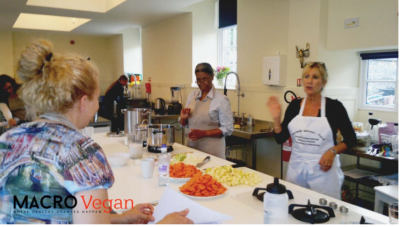
I have written this short essay for submission reporting my vegan advocacy work. The nature of the competition was what one did to contribute to saving the world. The prize money (manifesting success, of course) would allow me to purchase copies of my book Go Vegan, for which I do not receive royalties, simply purchasing them at the unit cost from the publisher. The copies will be distributed to all the teachers and kids that Bill and I will have the pleasure teaching in many of the disadvantaged schools. Our first workshop is 21st March. We hope to change many more lives. Life is a gift for every living creature and must be protected.
Selected Diary Entries, 2024 / 2050
2050
Diary Entry February 2nd,
A chilly morning here today. Frost on the grass and a cold wind that stirs the buds on the trees anticipating these early springs we are now having. All the children in town are helping with the community gardens. It’s very quiet. It’s a no cars day, the streets are empty.
The latest International Panel on Climate Change (IPCC) issued their long-awaited statement last night. What a lovely moment. They agree that CO2 and methane emissions are holding on the downward trend for the fourth year in a row. We are turning things around.
Africa and South America have collectively agreed to halt anymore land clearing for cattle feed and are creating plans for replanting and new soil and land use. It all has taken time but what seemed impossible is happening.
When combined with the WHO approval of therapeutic applications of healthy vegan diets for diabetes, many cancers and heart disease we seem to be on the steady climb out of the tragedy of animal slaughter, environmental destruction, and preventable disease we seemed to be locked into. There is still so much to be done but the work seems a happier kind of work.
I was inspired this morning to review old diary entries as far back as 2024. To remind myself just how we got here. I just picked pages at random and had a few surprises. I am amazed with the changes that have happened since then. There were times when everything seemed dark even with our persistent commitment to optimism. Sometimes being stubborn pays off.
2024
Diary Entry February 1st
The phone tells me it is going to be a sunny afternoon, good day for a hike in the woods. This morning, we had a great zoom call with one of our advisory board members. There was a new study that showed a significant rise in the number of people eating a vegan diet. Any good news is good news. It helps to balance off those who seem to either be threatened or angry by the prospect of change.
There is a growing tribe of haters that think packs of unruly vegans will be roaming the streets forcing kale smoothies down everyone’s throats. I heard one say that vegans are “stealing our meat”.
This study found that almost 5% of the adult population identified as vegan! 2.5 million vegans, up 1 million from a year ago, that’s impressive. That same survey showed just over 6 million additional vegetarians and pescatarians moving in the right direction.
The brainboxes at Stanford University claim that it takes 25% of a group to create a tipping point for any issue of social change. Gladwell says 10%. Who knows? Who really cares? This is one situation where more is better.
We have always used this quote from Margret Mead in our classes, “Never doubt that a small group of thoughtful, committed, citizens can change the world. Indeed, it is the only thing that ever has.”
Our Human Ecology Project has a big vision and a simple set of tools to build on. We believe that education is the key. With the rapid destruction of the natural world, we look to the wisdom of the ancients and early environmentalists who knew that there is no environment “out there”. The environment exists within us and around us, we are one with the environment. The separations we perceive are illusions that serve to keep us from our true self. The young understand this message.
The education that is needed in connecting the dots. What Gregory Bateson called the Ecology of the Mind. If we don’t think differently, we cannot act differently.
The first Law of Ecology is, Everything is Connected. This simple fact lies at the foundation of what we teach. This is certainly not a new idea but a profound one. If we look at our daily actions, we can track our footprints leading to the tragic and needless killing of millions of land animals and a trillion sea creatures, but they do not stop there. They continue to the land needed and the crops raised to feed those animals. They stay the course to the production of the chemicals used to force more growth that run off into the streams and seas to choke out life there. Those are not negatives to cry over but rather challenges to be engaged with. It is only light that pierces darkness.
These connections can be taught as part of an appreciation of nature’s order as well as the power of personal choice. We curate and communicate ways to create balance through a healthy planet for both human and non-human life.
2025
Diary Entry – November 28th
America celebrates thankfulness on this day. No irony is involved. About 46 million turkeys will be sacrificed to the appreciation of life. The American CDC estimates that one in six people will get sick on the day, with over 100,000 going to the hospital. That means that almost as many people get sick as turkeys killed. The gorging goes on all day.
(I can’t help myself. Fun fact - Thanksgiving was started as a holiday by Abraham Lincoln, it was suggested by the woman who wrote, Mary Had a Little Lamb. Kids love the rhyme about the cute lamb. Not a turkey in sight.)
Here in the UK, we are hosting the first meeting of the Planet Partners meeting. Forty young people showed up. The theme was giving thanks. We had a great dinner that they helped prepare and celebrated different aspects of the natural world.
Some of the kids wrote poems or created skits. There was a good mix of young folks, mostly 16 to 18 years old, some even younger. We want to give them the information they need to make good decisions. We make sure that the parents know what the young are doing, don’t want to create too many family issues. (A few are probably unavoidable.)
We want to make this non-political (with a small p). Get them informed and schooled in non-violent, non-confrontational communication. If they can just share what’s in their heart as well as what’s in their mind, we will be OK. It’s all about modelling. Be the change you want to see.
2026
Diary Entry – September 20th
This has been difficult. What are we all waiting for? Changing the climate means changing the story. If we don’t change the way we purchase things we can’t change anything. We are all creating a new story, one that is hopeful, one that is exciting, one that is life affirming.
Food is the key. Everyone must eat. All food requires resources. Simply look at the resources used for foods and eat the ones that use the least resources with the most nutrition.
The local Planet Partners have tripled in size over the past two years. We now have over 150 active members. They have all taken on the Social Learning approach of modelling a healthy vegan life. The links with the like-minded are growing, everyone from farmers to teen influencers are joining hands in this endeavour. No dues to pay, no pledge to sign, only daily action. The principles are clear. Avoid killing to live, stay healthy so you can be happy, help others along the way.
Getting good feedback. So many say that others around them comment on their health as well as their attitude. They have taken it upon themselves to produce funny clips on social media that celebrate being vegan. One good thing about the internet is that it crosses borders. We are getting new Planet Partners from all over the world.
There is an upswing in teens and young people starting gardens and lobbying for school vegan meals. Some think that we are beginning to experience exponential growth. We now have a huge library of short video’s, workbooks (all filled with reading lists and research references) and both online and regional conferences. Getting increased networks with environmental and health groups. We are focused on how people can benefit from a vegan society.
Our advisory board is growing. More Doctors, Ecologists, Social Activists, Animal rights experts and a few poets and film makers. What a great resource for our young friends.
2035
Diary Entry – November 20th
Happy Birthday!! 60 years old. Surrounded by people half my age. Well, what can I say? The demographics are slowly changing. Health, more advanced age. Animals and Environment hand in hand. From our original group over 100 are still with us and over thousands of new members in the UK over the past six years. We need to keep the good news flowing.
Out of the first-year group, some are now in their late 20’s and even early 30’s. Some are gaining high profiles. We now have even more teachers, more doctors, and a wide range of associates in all walks of life.
Land transition programmes are starting to promote plant-based food products on farmland used for animals. This is needed. Some folks have farms that have been in families for generations. We need to help them create positive change that saves and rebuilds the land while generating income.
If we count the casual members who don’t do much advocacy, we figure 250,000 in the UK alone. That is out of the total of 4 million vegans according to the latest estimates. Our educational videos and workbooks are spreading far and wide. We now have translations in 10 languages. Still keeping simple and positive.
Our network now includes ocean reclamation and fish stock revival, clean river groups, veganic gardeners, natural foods manufacturers, forest renewal groups and several organizations focused on wildlife preservation.
2042
Diary Entry – February 25th
The resistance we were receiving in India and China is slowly ebbing away. The latest papers on health benefits and savings in treatment are having an impact. Some of our affiliates have integrated great programmes to establish vegetable protein plants in Africa. Three factories have started now in Uganda, and they are already employing almost 1000 people. It is important that all projects provide honourable employment to workers.
2050
Diary Entry – September 4th
80 years old! how time flies. Two of our older associates are due to receive honours from the UN this year. Their sustainable land programmes in three continents have successfully flipped almost 1 billion acres of land that was used to grow feed for animals over to organic human food production. Amazing, That’s almost half of the damaged land.
The ban on artificial semination of animals is bringing down the population of the ones that are still under threat. We are not done but we are at the beginning of the end.
There are others that are setting up rewilding projects, forest building projects and river clean-up. We are talking about hundreds of millions of acres of damaged lands and thousands of miles of rivers. This is employing thousands of young people.
All the high-tech solutions for clean power are certainly useful but it is the daily actions of millions of people who stopped supporting the animal industries that have made the greatest impact. The health benefits ripple out as well. There is now general acceptance that a healthy vegan diet is good for all life. It has gone beyond self-interest. When you transform yourself, you transform the world around you.
Marlene Watson-Tara
Humans Have NO Need To Eat Animal Products
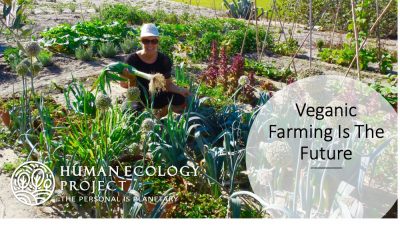
Plant-based vegan diets are healthy and sustainable. This is now irrefutable since every major health institute around the world endorses this way of living. Remember, knowledge is power. Here is a useful list of links below.
A vegan diet contains only plants (such as grains, beans, vegetables, nuts, seeds and fruits). Vegans do not eat foods that come from animals, including dairy products and eggs.
Healthy eating as a vegan
You can get all of the nutrients you need from eating a varied and balanced vegan diet. The NHS need to update their information in terms of its infancy recommendations. A vegan diet is completely healthy from birth to old age. They also recommend lots of oils for omega-3 sources. Nuts, seeds etc., are a far healthier choice than oils. Nuts and seeds not only provide the healthy fats your body needs, but they also contain beneficial phytochemicals and nutrients. Vegetable oils are not recommended because the omega-6 comes in much larger volumes and they're more likely to already be oxidised because they've been exposed to heat. Unprocessed is always the best choice. They also recommend a variety of supplements which are not required when you eat a well-balanced wholefood plant-based diet. B12 is the only supplement required.
The Permanente Journal:"Healthy eating may be best achieved with a plant-based diet, which we define as a regimen that encourages whole, plant-based foods and discourages meats, dairy products, and eggs as well as all refined and processed foods. We present a case study as an example of the potential health benefits of such a diet. Research shows that plant-based diets are cost-effective, low-risk interventions that may lower body mass index, blood pressure, HbA1C, and cholesterol levels. They may also reduce the number of medications needed to treat chronic diseases and lower ischemic heart disease mortality rates. Physicians should consider recommending a plant-based diet to all their patients, especially those with high blood pressure, diabetes, cardiovascular disease, or obesity."
http://www.andjrnl.org/article/S2212-2672(16)31192-3/abstract
Dietitians Association of Australia:“Vegan diets are a type of vegetarian diet, where only plant-based foods are eaten. They differ to other vegetarian diets in that no animal products are consumed or used. Despite these restrictions, with good planning it is still possible to obtain all the nutrients required for good health on a vegan diet.”
http://daa.asn.au/.../smart.../nutrition-a-z/vegan-diets/
Academy of Nutrition and Dietetics:“It is the position of the Academy of Nutrition and Dietetics that appropriately planned vegetarian, including vegan, diets are healthful, nutritionally adequate, and may provide health benefits for the prevention and treatment of certain diseases. These diets are appropriate for all stages of the life cycle, including pregnancy, lactation, infancy, childhood, adolescence, older adulthood, and for athletes.”
http://www.ncbi.nlm.nih.gov/pubmed/19562864
British Dietetic Association:“Well-planned vegetarian diets can be both nutritious and healthy. They have been associated with lower risks of heart disease, type 2 diabetes, obesity, certain types of cancer and lower blood cholesterol levels.”
www.bda.uk.com/foodfacts/vegetarianfoodfacts.pdf
Dietitians of Canada:“A healthy vegan diet has many health benefits including lower rates of obesity, heart disease, high blood pressure, high blood cholesterol, type 2 diabetes and certain types of cancer.”
https://www.unlockfood.ca/en/Articles/Vegetarian-and-Vegan-Diets/What-You-Need-to-Know-About-Following-a-Vegan-Eati.aspx?fbclid=IwAR3lqzG5gjgIVMS6A21Y9z1fnS3NSdvkXOiquyZT36y6u9kexkOXTroxaRQ
Harvard School of Public Health:“Nowadays, plant-based eating is recognized as not only nutritionally sufficient but also to reduce the risk for many chronic illnesses.”
http://www.health.harvard.edu/staying-healthy/becoming-a-vegetarian
Cleveland Clinic:“There really are no disadvantages to an herbivorous diet! A plant-based diet has many health benefits, including lowering the risk for heart disease, hypertension, Type 2 diabetes, and cancer. It can also help lower cholesterol and blood pressure levels, plus maintain weight and bone health.”
http://my.clevelandclinic.org/health/articles/understanding-vegetarianism-heart-health...
New York Presbyterian Hospital: “People who follow a vegetarian diet are relatively healthier than those who don't. Vegetarians tend to have a lower incidence of obesity and fewer chronic health problems, including some cancers, heart disease, high blood pressure, and diabetes.”
http://nyp.org/wellness/showDocument.php?contentTypeId=1…
The Ronald Reagan UCLA Medical Center (UCLA):“Some of the health benefits of a vegetarian diet may include: [decreased blood cholesterol levels and blood pressure; [l]ower incidence of heart disease, some forms of cancer, and digestive disorders like constipation and diverticula disease; [l]ower incidence of obesity and some forms of diabetes.”
http://www.dining.ucla.edu/housing_site/dining/SNAC_pdf/Vegetarianism.pdf
The Mayo Clinic:“A well-planned vegetarian diet can meet the needs of people of all ages, including children, teenagers, and pregnant or breast-feeding women. The key is to be aware of your nutritional needs so that you plan a diet that meets them.”
http://www.mayoclinic.com/health/vegetarian-diet/HQ01596
Nutrition Facts:"These are the top 15 causes of death, and a plant based diet can prevent nearly all of them, can help treat more than half of them, and in some cases, even reverse the progression of disease, including our top three killers."
http://nutritionfacts.org/video/uprooting-the-leading-causes-of-death/
Walter Willet, the Chair of Harvard nutrition department, writes:
“Humans have no nutritional requirement for animal milk, an evolutionarily recent addition to the diet,” Willett and his co-author, David Ludwig, of Boston Children’s Hospital, wrote in an article published last September in the journal, JAMA Pediatrics.''
''… the recommendation for three servings of milk per day is not justified and is likely to cause harm to some people. The primary justification is bone health and reduction of fractures. However, prospective studies and randomized trials have consistently shown no relation between milk intake and risk of fractures. On the other hand, many studies have shown a relation between high milk intake and risk of fatal or metastatic prostate cancer, and this can be explained by the fact that milk intake increases blood levels of IGF-1, a growth-promoting hormone.''
http://life.nationalpost.com/.../drinking-milk-not.../
NHS - UK - A vegan diet contains only plants (such as vegetables, grains, nuts and fruits) and foods made from plants. Vegans do not eat foods that come from animals, including dairy products and eggs. Healthy eating as a vegan - You can get most of the nutrients you need from eating a varied and balanced vegan diet.
https://www.nhs.uk/live-well/eat-well/the-vegan-diet/
Nutrition Facts: "These are the top 15 causes of death, and a plant based diet can prevent nearly all of them, can help treat more than half of them, and in some cases, even reverse the progression of disease, including our top three killers."
http://nutritionfacts.org/video/uprooting-the-leading-causes-of-death/
In good health

Society
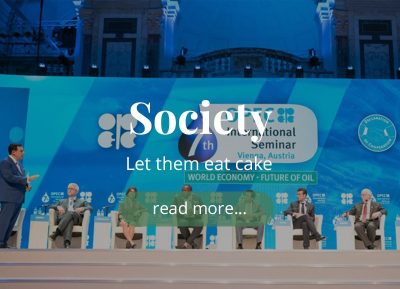
At COP28 the conversation is still about money and not feeding the world.
Another year, another COP meeting and the environment is back in the news. COP stands for Convention of Parties and they do party. This gathering of 84,000 people got together in the desert paradise of Dubai for one of the years greatest shows. They flew in from all around the world in private jets to create the grand illusion that there was action being taken for solving the destruction of planet earth.
Industry lobbyists and NGOs all vie for the attention of the politicians and government representatives that approve or block any proposals that might pass muster. As usual, there were a few headline grabbing actions. Millions of dollars were pledged to the Pacific Island nations that totalled to about 2% of what was needed. Oil companies pledged to make their product cleaner (details to come later, much later) and new technologies were explored. Who doesn’t get excited about new technology? What wasn’t talked about was food.
The government/agricultural complex is not going to budge. The rivers and oceans are being poisoned with the agricultural runoff of fertilizers, leaving a lifeless soil. The forests of the world are being cut down to grow food for animals and billions of animals are being kept in barbaric conditions to be killed for our pleasure. The atmosphere is being filled with the methane gas and other greenhouse chemicals that arise from this wasteful and tragic use of resources. All this is done in the name of profit, there is no other rationale. Let them eat cake is the only comment that comes from COP28.
While the delegates could choose “juicy beef”, “slabs of succulent meat” or “melt in your mouth barbeque” the biggest step forward toward climate recovery and repair was not on the menu. Everyone is afraid to call out the stupidity, the greed and violence inherent in the killing of animals for eating.
There were three times as many lobbyists from agricultural interests than ever before. The dairy industry alone had 120 delegates. Food manufacturers and pesticide companies were given free rein to rub shoulders with the diplomats and decision makers to remind them of their monetary power.
Ben Lilliston, of the Institute for Agriculture and Trade Policy, said: “With greater scrutiny over emissions from meat and dairy companies, it is not surprising they are stepping up their game to head off any Cop outcome that might hinder their operations. Even so, a tripling of delegates is alarming – it drives home the urgent need for reforms that limit corporate influence at UN climate meetings.”
Animal agriculture is the leading cause of ecological destruction because it uses 37% of the ice-free land area of the planet just to graze animals [1], while bottom trawling an area of the ocean floor the size of South America every year for industrial fishing [2].
It is estimated that one-third of global greenhouse gas is a result of the meat and dairy industry. They are also the cause of the most environmental damage in terms of deforestation, biodiversity loss, pandemic risk, and water pollution.
Dairy production alone emits more greenhouse gasses than the global aviation industry. Governments are too weak and financially invested in this tragic waste of life and resource to act, it is only the actions of individuals that can turn the tide. The only solution is to stop eating animals and support a new approach to feeding the world that is healthy for society and the environment.
WHAT WE CAN DO
There is no single issue that illustrates how our cultural enchantments pull us away from a healthy relationship with the planet than our attitudes regarding what we eat. Here are things that we can do right away to help turn the tide and be on the right side of history:
- Stop consuming all animal products. Mammal meat, chicken, pork, dairy, eggs, fish, and all animal foods raised, free-range or wild caught are harmful to the ecology of the planet and human health.
- Support Organic & Veganic Growers. Start to support those farmers who are taking care of the land. Eat organically and veganically raised foods as much as possible. Plant based foods have a much smaller carbon footprint and require less water and land to produce.
- Download our free eBook, The Human Ecology Diet: https://humanecologyproject.com/what-to-eat/ and learn the way to create a healthy and diverse diet for you and your family.
- Be a happy advocate for a vegan world. No need to attack, prove it can be done by your daily actions. Share information with those who are open for a conversation, be informed.
- Don’t wait, do it now.
[1] https://www.ipcc.ch/site/assets/uploads/2019/08/Fullreport-1.pdf
[2] https://marine-conservation.org/archive/mcbi/Watling_&_Norse_1998.pdf
Animals
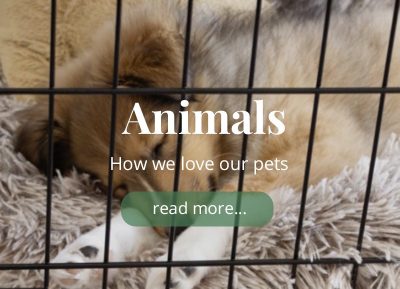
We need to reassess our relationship to the whole animal kingdom and a good place to start is with those non-humans we claim to love the most.
The human love affair with dogs goes back possibly 20,000 to 30,000 years. The relationship has moved through a working relationship to one of being adopted as a totally dependent child. There are estimates that there are as many as 900 million dogs in the world (both strays and pets). Most people love their domestic pets and even consider them part of the family. There is however one big difference, they are all property. We own our pets.
Our trustee, Professor Gary L. Francione speaks very compellingly on this issue of ownership. Since we own our pets, we can do as we please with them. Depending on our emotional attachment they are expendable. We govern their lives and their deaths. During the recent covid lockdowns many animals were adopted and then put aside or put down when the novelty had worn off.
Increasingly we are responsible for their births. We do not simply want a little dog companion we want a particular breed, one that looks a particular way. We want canine arm candy. This has serious implications for the health of the dogs.
Ninety-nine percent of all vets believe there is an increase in complications with pregnancy with crossbreeding. This is driven because of the popularity of breeds such as Labradoodles. The females used in the dog breeding businesses are kept pregnant as much of the time as possible (like many farm animals). These overbred mothers suffer from complications that produce physical pain and emotional stress when their pups are taken away too soon. This shortens their lives. All for what? A photo opportunity?
The incidence of life-threatening health disorders is common in 42% of “purebred dogs”. [1] Purebred dogs were more likely to have 10 genetic disorders, including dilated cardiomyopathy, elbow dysplasia, cataracts, and hypothyroidism. [2] We need to reassess our relationship to the whole animal kingdom and a good place to start is with those non-humans we claim to love the most.
WHAT WE CAN DO
- Thousands of wonderful dog and cats wait daily for someone to give them a home. Some have faced abuse, all are grateful for a warm home, companionship (that’s right they need contact) and a friendly pack to be part of. If they do not find a home they are killed, about 1.5 million meet this fate each year in America.
- 82 per cent, of veterinarians in the UK believe the spaying and neutering of cats and dogs should be compulsory. We are allowing an overpopulation of these domestic animals. We are responsible for bringing these dogs into their relationship with humanity. This overpopulation feeds into the increasing number of strays. There are over 200 million stray dogs in the world, 70 million live in America. [3]
- Think before you adopt. Dogs require attention and exercise. Many people return pets or simply abandon them when they realize that there may be some work involved. If you are not willing to take your four-legged friend out for walks runs or play time you are not ready to have a dog. Also think about space. We often see large dogs that are living in small apartments and only get out maybe once a day, there are many forms of cruelty.
- After the covid lockdowns one reason why some were returned was because people could not afford to feed them. Work this out in advance.
- If you are a vegan or vegetarian there are healthy options for dog food that meet all the nutritional requirements. Keep your friend healthy and safe if you really care.
[1] https://www.rspca.org.uk/adviceandwelfare/pets/dogs/puppy/pedigreedogs/health
[2] https://pubmed.ncbi.nlm.nih.gov/23683021/
[3] https://www.restedpaws.co.uk/uk-usa-and-wider-pet-sheltering-and-homelessness-statistics/
Environment
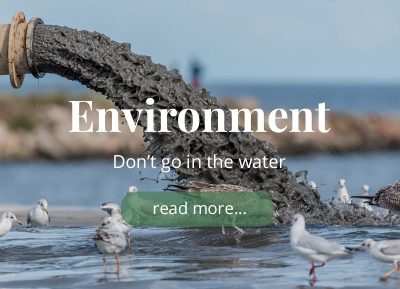
Moving beyond the usual smoke and mirrors of corporate ethics toward cleaner water.
We featured water in our last newsletter and here we are again, it is an on-going issue. Recent news in the UK have shown, how governments fail to act till too late. All over Europe and America the rivers, lakes and coastal waters are being poisoned by industrial pollution, agricultural runoff, contaminated wastewater, and human and animal faeces. These problems have been highlighted by the increase in rainfall.
Modern sewers installed since the 1960s contain two pipes to keep separate the sewage collected from homes and businesses and the rainwater falling in built-up areas. However, because most of the sewer systems are combined, the separated rainwater pipe is at times still connected to the combined sewerage system. There are around 100,000km of combined sewers in England.
Usually, the network of sewers takes the wastewater to a sewage treatment works where it is treated and returned to rivers and streams and eventually to the sea. In certain situations, the water companies are allowed to release untreated sewerage in the inland waters directly. This water is called overflow discharge. It is here that we enter into the usual smoke and mirrors of corporate ethics.
Since the companies are virtual monopolies and competition is limited. The prices companies can charge their customers are controlled and regulated by Ofwat. This is the regulatory agency that reviews price limits. These regulations are set every five years, and as a result, new water company investment is planned in five-year cycles. The next price review period is not until 2025–2030.
These private companies have paid out a total of £965 million in shareholders dividends and the CEO’s have taken home £16 million in pay over the 2021/22 financial year. These pay-outs have been made while the outdated infrastructure continues to deteriorate.
While some rake in the cash, the UK is ranked last in Europe for bathing water quality. Raw sewage was discharged in waterways 399,864 time in 2022. There are now 75 rivers that pose a serious risk to human health.
This chemical cocktail of pollutants not only harms aquatic plant and animal life, but it also ends up in the sea where it contributes to algae blooms that starve the water of oxygen. The damage to human health is serious as well, putting water users at risk. Harmful illnesses including viruses and antimicrobial resistant bacteria are common features of this toxic water.
WHAT WE CAN DO
- Use a water filter. There are many on the market, review one that is right for you. Even the simple countertop versions are better than nothing.
- Check on your local water system and see how it rates. If there are problems write and let them know you are not impressed.
- Check local rivers and coastline for contamination. There are published reports on pollution. If the waters are not safe don’t let your children swim in them.
- Support local organizations that lobby for clean water.
Health
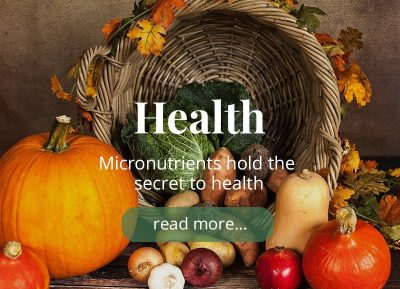
The body is built to pull out what it needs from the available foods. Don’t overthink, simply get a diverse diet. The body (not the mind) chooses what to accept and what to reject.
Dietary diversity is essential. The range of nutrients needed for superior health and disease prevention come from a variety of sources. Both vitamins and minerals are well acknowledged as nutritional essentials.
The macronutrients, carbohydrates, proteins, and fats are the foundation of a healthy diet. These foods make up the greatest volume of foods we eat but they are useless without the vitamins and minerals contained within them. These are the micronutrients.
Vitamins are organic compounds that are produced mostly by plants and bacteria. The vitamins your body cannot manufacture in sufficient amounts are called “essential micronutrients”. Except for vitamin D and B12 they all must be derived from the foods we eat. We do not manufacture them.[1]
Minerals are absorbed by plants from soil or water. They are inorganic elements and must be taken in either by eating plants or in some cases, animals that have eaten plants. The requirement for specific minerals varies widely. Those minerals that have lower requirements (but still essential) are called trace minerals.
All the micronutrients are only required in small amounts, but if we do not have the full range it puts the body in danger of disease. The reality of this has created a general concern for the issue of “insufficiency” or “deficiencies” regarding these tiny potent substances.
Vitamin and mineral deficiencies are seen as the cause of Scurvy, Rickets, Beriberi, and Anaemia as well as a long list of other diseases. These diseases are normally associated with poverty and malnutrition. In other words, they are simply caused by a lack of food. They are rare in affluent countries since the diet may be unhealthy, but it is diverse. This has not stopped the promotion of supplements touting preventative benefits or food manufacturers “fortifying” with “essential” vitamins or minerals.
While the common deficiency diseases are rare in Western society, a diet without adequate micronutrients can still cause problems. A lack of minimal vitamins or minerals can be a contributing factor to a variety of major illnesses such as type 2 diabetes, cancer, heart disease, and osteoporosis.
Micronutrients play an essential role in immune functions[2], the management of Alzheimer’s disease[3], and metabolism[4]. These vitamins and minerals also act as antioxidants. They help reduce the activity of free radicals which cause premature ageing and exacerbate inflammation. Free radicals are linked to the cell damage that is associated with cancer development [5]. The most important source of antioxidants are fruits, vegetables, and grains.
When it is discovered that there is any nutrient that has great value business moves in with the message that you might not have enough. Vitamin deficiency was a primary scare tactic in the 1950’s to promote foods that have been “fortified” or “enriched” with extra nutrients. Bread, milk, fruit juice, and breakfast cereals all need extra help to be healthy. This sales strategy is still in force.
The idea that there may be serious deficiencies in our diet is a powerful message. This is particularly true when choosing food for children. What parent would not want their child to drink orange juice if it meant they would avoid scurvy? If added iron in the bread, or 5 added vitamins and 2 added minerals in their breakfast cereal is good for them, so be it. These common nutritional narratives live on in the consumer consciousness long after they have been shown to be empty promises.
According to the experts at Johns Hopkins University, half of all American adults take multivitamins or other vitamin supplements on a regular basis. The cost is $12 billion a year. In a study of 450,000 people, they found that the vitamins did not reduce the incidence of heart disease, cancer, cognitive decline, or early death.[6] This same conclusion has been reached by multiple researchers. They all say It would be better spent on whole foods.
"I'm puzzled why the public in general ignores the results of well-done trials," said Eric Klein, national study coordinator for the prostate cancer trial and chairman of the Cleveland Clinic's Glickman Urological and Kidney Institute. "The public's belief in the benefits of vitamins and nutrients is not supported by the available scientific data."[7]
The reality of vitamin and mineral requirements is that they have been driven by the food industry and not science. Because of this they do not reflect several simple facts that are well known by serious nutritional researchers.
What We Can Do
- Cooking is really important when eating grains, beans and many vegetables. Make sure you have enough vegetables in your diet. The food we digest needs to make it through the gut biome before it can make any impact on our energy and maintenance needs.
- The body is built to pull out what it needs from the available foods. Don’t overthink, simply get a diverse diet. The body (not the mind) chooses what to accept and what to reject. In the words of Professor T. Colin Campbell, “The body reigns supreme in choosing which nutrients it uses and which it discards unmetabolized.”[8]
- All micronutrients work in concert with others, usually in pairs. The proper balance of these complimentary pairings cannot be worked out in the lab. it is the microorganisms in the gut biome that “decide” which nutrients to allow in and which to reject.[9] This distinction is made according to what an individual needs, not what they think they want. This is why a simple, unprocessed, un-fortified, diet is the healthiest.
- Download our free eBook, The Human Ecology Diet for ideas on creating a diverse healthy diet. https://humanecologyproject.com/what-to-eat/
[1] [1] https://www.health.harvard.edu/staying-healthy/micronutrients-have-major-impact-on-health#:~:text=Five%20micronutrients—
[2] https://pubmed.ncbi.nlm.nih.gov/17726308/
[3] https://www.ncbi.nlm.nih.gov/pmc/articles/PMC3656646/
[4] https://pubmed.ncbi.nlm.nih.gov/16376462/
[5] https://www.cancer.gov/about-cancer/causes-prevention/risk/diet/antioxidants-fact-sheet
[6] https://www.hopkinsmedicine.org/health/wellness-and-prevention/is-there-really-any-benefit-to-multivitamins
[7] https://www.nytimes.com/2009/02/17/health/17iht-vitamin.1.20240783.html
[8] Whole, rethinking the science of nutrition, T. Colin Campbell, PhD with Howard Jacobson PhD, BenBella Books
[9] https://www.bmj.com/content/361/bmj.k2179


